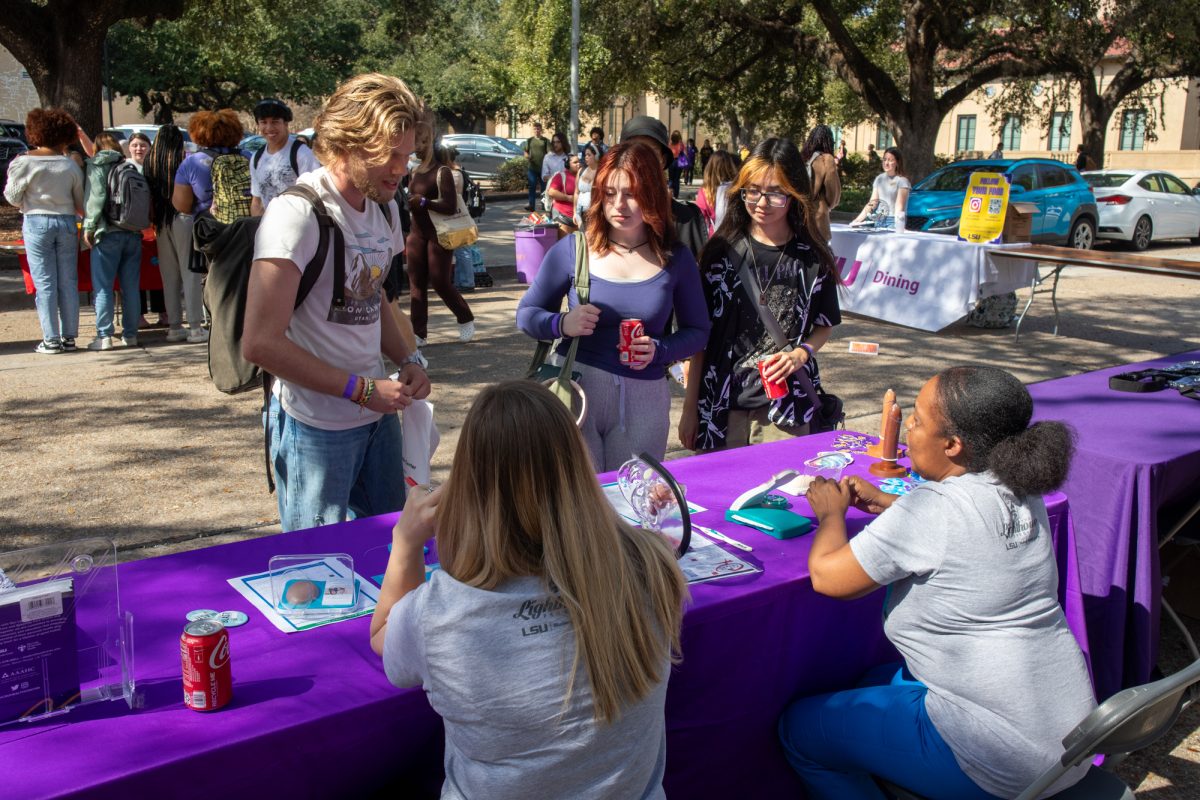University faculty members and students with nursing children no longer need to worry about breastfeeding in cramped cars or unsanitary bathrooms. The first major initiative of Tiny Tigers, the University’s new pregnancy and parenting program, was to implement more accessible lactation rooms across campus.
“I think, as usual, women make do with what they have,” Tiny Tigers committee member and executive director of Facility & Property Oversight Tammy Millican. “Sometimes they don’t ask, and that’s why a lot of times they’re nursing in the restroom.”
There were a few lactation rooms already present in the LSU Women’s Center and the athletic administration building. However, most people, including Millican herself, were unaware of their existence. The rooms were also poorly constructed with locks that allowed outside entrance, which is against federal Department of Labor laws. Employers are required to provide private spaces for breastfeeding, and bathrooms or rooms that are accessible from the outside do not qualify.
Fellow committee member Dr. Jane Cassidy said breastfeeding can sometimes be an uncomfortable topic, so Tiny Tigers seeks to provide options that are as discrete and convenient as possible.
“Imagine a young woman coming back to work that has an older man that’s the boss and [she has] to ask him to go nurse, how uncomfortable that might be,” Cassidy said. “I think maybe we were a little bit behind the times, but pretty soon we’re going to be way ahead of other institutions.”
The University needs at least 12 lactation rooms to accommodate an adequate number of students and faculty members, Cassidy said. The program hopes to end up with as many as 15 locations spread across campus. Spots are already available in the LSU Student Union, Middleton Library, Patrick F. Taylor, among other places listed on the Women’s Center website.
Certified lactation counselor Dr. Erin McKinley was inspired by Auburn’s Tiger Babies program and wanted to bring that to LSU on a larger scale.
“I wanted to take that and do it better,” McKinley said. “[Tiger Babies] is just focused on football guests and making sure they have accommodations. I thought, ‘we can take that and make it campus wide.’”
The original goal of Tiny Tigers was to provide the lactation rooms, but the committee will continue meeting and expanding the program over time to provide more services. It hopes to hold workshops, events and seminars on topics from pregnancy to infant-feeding. McKinley also wants to set up tents throughout tailgate areas on game days.
“There are a lot of other SEC schools that have that and [are] getting noticed for that, so I would like to keep LSU up there with all of the other SEC schools and staying competitive in that area,” McKinley said.
Lactation research conducted by national studies show the number of women breastfeeding past the three-month mark is dwindling. Out of 85 percent of new mothers who say they intend to breastfeed for three months or longer, only 32.4% actually achieve this goal. McKinley attributes those statistics to the difficult transition of returning to work after maternity leave.
“They’re stopping sooner than they’re suggested to,” McKinley said. “That can cause a lot of emotional stress on the mother when she feels like she is not living up to the expectations of motherhood because they can’t live up to what is suggested to them by their doctors.”
Another potential benefit of the program is attracting younger staff members who plan to have families. Tiny Tigers wants the University to be recognized as a breastfeeding-friendly and family-friendly employer.
“When you’re trying to get top-notch people who are young and interested in starting a family, all of these things help you get the best people,” Cassidy said. “They’ve got choices other places. If they know children are in their future, they are looking for a place where they can parent and work at the same time.”
Erica Hawthorne, communications specialist for the Office of Academic Affairs, commented that the knowledge that the lactation rooms are there whenever she or other University faculty members need them is reassuring.
“As an expecting mother myself, it is very nice to know that we have these rooms that are open for any women that are breastfeeding or plan to breastfeed,” Hawthorne said. “It’s just good to know those are there and they have resources for all of us.”
All of the lactation room locations will soon be available for public use, and Cassidy already has her eyes set on the program’s next projects.
“We’re ready to take it to the next level.” Cassidy said. “We’re going to keeping meeting and always ask, ‘What’s the next thing we can do?’”










